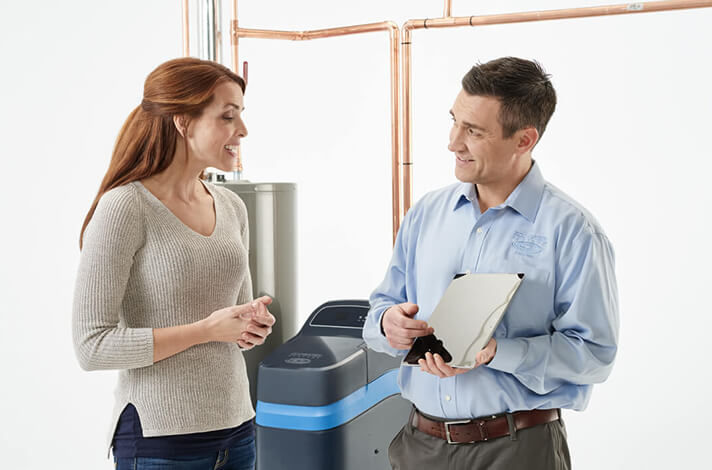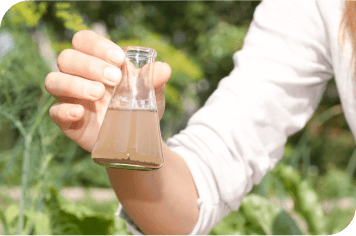You can’t always see, smell or taste them, but your water may have unwanted contaminants. Managing private well water to ensure it’s clean and safe for you and your family can be challenging. This is because every well is unique, and what’s in your well is different from what’s in your neighbor’s. EcoWater has you covered—from having a Water Pro test your water to providing diagnosis and treatment to ensure you have the exact solution your home water requires.
Contact an EcoWater Pro
Well Water Basics
Unlike municipal water, well water isn’t tested—unless you choose to have it done—and there aren’t government regulations or criteria in place to ensure your home water meets your standards for quality or safety. With well water, keep in mind the following:
- Home water can be contaminated by human activity and naturally occurring sources
- You are responsible for your own water safety
- Contaminants can infiltrate your well through groundwater movement, water seepage or runoff
- Some contaminants could negatively affect your health
A Water Pro can speak to widespread contamination issues that are present in your community or geographic area.

Have Your Well Water Tested
When it comes to home water and how it impacts your health, leave nothing to chance. If you have a private well and have never had it checked out you should have a Water Pro test your well water right away to provide diagnosis and recommend a permanent solution.
Well and Groundwater Contamination
Whether your well water has naturally occurring contaminants, contamination caused by human activity, or a combination of the two, solutions are available that can provide access to cleaner, safer water for you and your family. Many contaminants only affect taste or smell, however some can negatively affect your health. By understanding what’s in your well, you will have all the information you need to gain peace of mind. Water contamination examples that are potentially dangerous include:
- Bacteria, viruses, and other types of microorganisms
- Organic chemicals such as pesticides, pharmaceuticals and sealants
- Heavy metals including arsenic, cadmium, copper and lead
- Nitrate which, in large quantities, is known to cause shortness of breath or blueness of the skin in infants

Tap Into Our Expertise
Fill in the following information so EcoWater can upgrade the taste and quality of water in your home.
